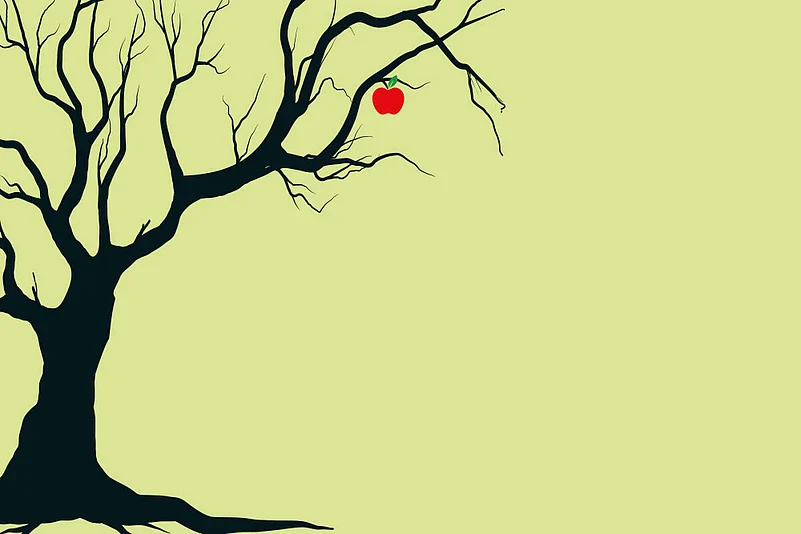Back in 2011, when Coca Cola India Private Limited (CCIPL) launched Project Unnati—as part of its environmental, social and governance commitments —to support the agricultural ecosystem in the country, food security did not seem as big a concern as it does now. However, things changed in the wake of rising global economic, geopolitical and environmental concerns. Resource optimisation became the key word as stakeholders started paying attention to farm productivity, food wastage, weak supply chain, lack of resources, etc.
According to the Food and Agricultural Organization of the United Nations, more than 40% of the food loss in developing countries occurs at the post-harvest and processing levels. CCIPL is working with farmers in India to address the issue of low farm productivity, poor technology adoption and fruit wastage by harnessing higher productivity potential, both at the farm as well as the processing level, says Rajesh Ayapilla, director, corporate social responsibility and sustainability for India and the southwest Asia region for CCIPL. Project Unnati’s focus on ultra-high density plantation and drip irrigation has led to substantial increase in quality, productivity and profitability per unit of land. So far, CCIPL has worked on varieties of orange, apple, grapes, litchi, mango and sugarcane in various states under the project.
In 2018, CCIPL launched Project Unnati Apple in Uttarakhand to promote production of apples. It partnered with Indo Dutch Horticulture Technologies Private Limited (IDHT) as its implementation partner for the project.
Explaining the need for such intervention, Ayapilla says, “Agriculture is the largest source of livelihood in India. Farmers have always struggled to make ends meet, and now, with the vagaries of climate change threatening their livelihood, they face challenging times ahead.”
Till now, more than 1,000 orchards have been established through technology interventions as part of this initiative, Ayapilla says. According to him, the apple yield per hectare has remarkably increased due to such interventions. “Even those farmers who used to get low yields due to lack of proper land usage earlier have reported 100-time increase. Our technology provides an average income enhancement by five times over traditional farming,” he adds.
Impact on the Ground
Initially unsure about the promise of higher returns, Devendar Singh Chausuli, a farmer in Nainital, grew two varieties of apples. “They are growing very well. I then started with 50 trees. With my association with CCIPL, I got a unit of 250 rootstocks and my village got seven to eight such units in total. A year later, the trees bore fruits and I sold the apples in Haldwani for Rs 180 per kilogramme.”
The earlier harvesting season for these trees is another advantage. “We are able to supply applies 10 to 15 days earlier than Himachal Pradesh, so there is market advantage,” says Chausuli.
Usually, the peak comes in August, and the harvest happens in July. Thanks to technological intervention by CCIPL, these apple farmers have an additional planting season. Usually, planting is done in February and March, but under Project Unnati, it is also being done pre-monsoon. CCIPL is now focussing on low chilling varieties of apples, which will help create a new geographical belt for the fruit—traditionally grown at higher altitudes. This in turn will increase its production.
Prakash Chanoula, a farmer in Bhimtal, started growing apples under the project in 2021. “I get 12 to 14 quintals of produce from about 250 trees. For other crops there is repetitive investment, but here a one-time investment will give returns for 10 to 15 years,” he says.
If farmers embrace the new technology and the ultra-high density plantation, we can double the production of apple in next five years, feels Sudhir Chadha, founder and director of IDHT, Bhimtal. “Earlier, farmers used to plant their trees five to seven metres apart, whereas the world has moved to planting 1,000 to 12,000 trees per acre, which is like planting trees at every one metre,” he says.
The higher plantation density has helped them earn more money from their land, say farmers. In fact, the lower plantation density of Uttarakhand made it a natural choice for the project. After this success, CCIPL has also expanded into Himachal and Jammu and Kashmir.
Circular Efficiency
CCIPL hopes to promote fruit circular economy through Project Unnati. “Fruit circular economy is Coco Cola’s endeavour, which aims to transform the country’s agricultural ecosystem by enhancing farming efficiency, strengthening forward linkages and building food processing capacity in the country. This programme aims to uplift farmers and the horticulture sector by addressing pressing challenges like poor technology adoption, low farm productivity and fruit wastage,” says Ayapilla.
CCIPL also provides infrastructure support. There is cold storage infrastructure, where trees are grown at a temperature as low as 3 degrees to 1 degree Celsius. A mobile display van is used to provide training, and awareness to interested farmers in villages.
No initiative is complete unless it benefits communities at large, says Ayapilla, as he talks about CCIPL’s work on fruit circular economy in different geographies and with different fruits. The adoption of good agricultural practices has not only increased fruit yield but also improved its quality and profitability, he says.
Over the years, Project Unnati has also made a social impact. CCIPL has provided training and access to markets to women, thus empowering them. Additionally, with more benefits attached to apple farming, the project is expected to stop migration from the mountains. Chausuli points to the trend of youngsters leaving their jobs to get back to orchards. “Project Unnati will help deal with unemployment to a great extent,” he says.































